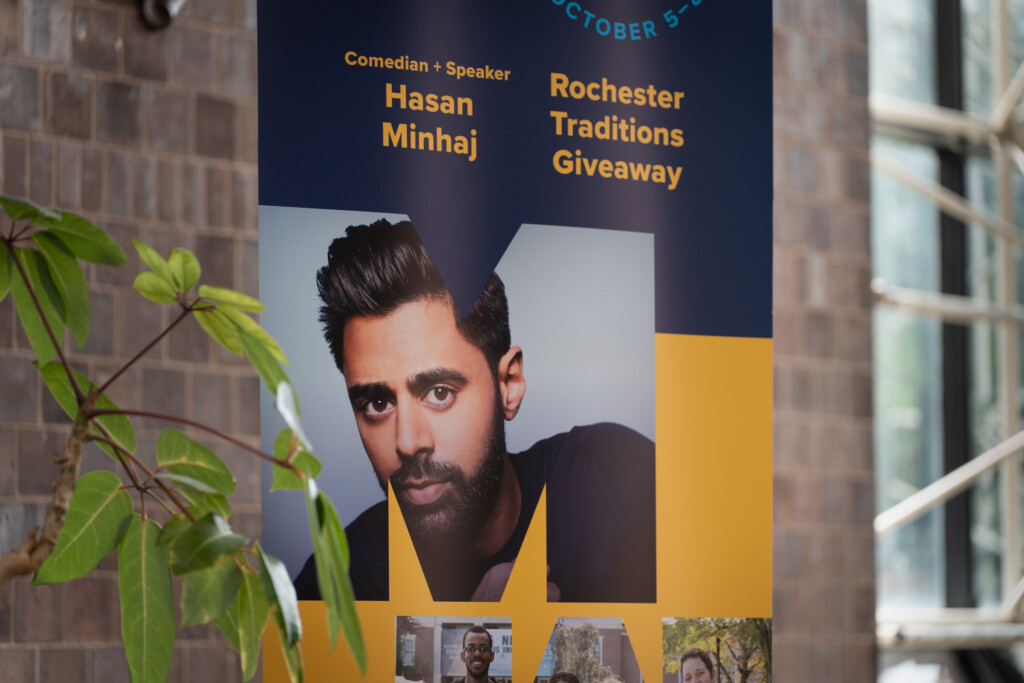As a student journalist, I spend so much time debating the issue of credibility in my head. Journalism, for all its artistry and possible humor and beauty, is, first and foremost, meant to convey information.
Thus, when I heard about Hasan Minhaj’s recent run-in with the real press, it got my gears turning.
The comedian, in an interview with The New Yorker, admitted to his standup being based on fictionalized exaggerations of real-world events, only some of which happened to him.
As an example, Minhaj received a letter with a white powder in it, which he utilized to fabricate a story to audiences about having anthrax sent to his house, leading to the hospitalization of his infant daughter.
I — like many — watched Minhaj’s Netflix show, “Patriot Act.” The show itself was known colloquially as a snappy mix of informative political commentary with a peppering in of relevant jokes, a la “The Daily Show” — where Minhaj was previously a senior correspondent.
To me, the difference between SNL’s Weekend Update and “Patriot Act” is its establishment of pathos and a focus that I assumed had been placed on information first, ha-ha-funnies second. However, this fact was much more flexible than I expected — just like Minhaj’s comedy.
“The nature of storytelling, let alone comedic storytelling, is inventive; its primary aim is to make an impression, to amuse or to engage,” Clare Malone writes in the aforementioned New Yorker article. “But the stakes appear to change when entertainers fabricate anecdotes about current events and issues of social injustice.”
Malone depicts Minhaj throughout the article as staunchly committed to the prioritization of emotional pull over fact, highlighting this as a concern during the writing process for episodes of “Patriot Act.”
According to the article, fact-checking was a distant, hastily added second to the creative flow. Minhaj refutes this — noting in a written statement that “A team of news producers fact-checked every line of every draft of every script at least 8-10 times before [he] ever said anything on camera.” Despite the hearsay, his credibility as a journalist was quashed for many.
But should this matter? At the end of the day, Minhaj is not a journalist — but to some, he is. His credibility as a source matters because he chooses to portray himself as such.
After this bombshell, Comedy Central reportedly is “going back to square one for efforts to find a new host for ‘The Daily Show’” after news buzz that Minhaj was a frontrunner replacement. Minhaj has gone through the X (formerly Twitter) rigmarole of being hated on; he’s being written about by every news outlet that can get their hands on a new piece of the chatter.
Obviously, I’m not in the unpaid student journalism business to exaggerate, but I can understand why Minhaj — who views himself as an entertainer first — would be inclined to prioritize getting a message he believes in out there with a focus on style first.
“Lying in comedy isn’t necessarily wrong,” says New York Times journalist and On Comedy columnist Jason Zinoman in his piece on Minhaj. “But how you lie matters.”
Unlike the Campus Times, a comedian like Minhaj can get away with some narrative futzing to audiences as long as the morality of it is, to their perception, sound.
However, the distraction of “playing to the audience” will be able to continue to mislead people — and shift blame from politicomedians like Minhaj to the consumer for believing the fictitious, also-named-Hasan-Minhaj persona — unless it is thrown out.
When you choose to toe this line as a comedian, it’s important to draw attention to the fact that you are not the news — and that you have the freedom to play fast and loose with the rules.
If people are so shell-shocked by issues like Minhaj’s, maybe political comedy, as a result of getting to dip its toe into both realms, requires its own set of disclaimers.



